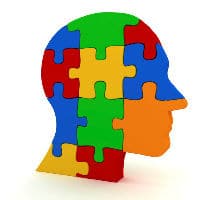Neuro-Linguistic Programming
Contents
What’s so special about neuro-linguistic programming (NLP)?
It isn’t the snappiest of names – and may even sound a little intimidating to the uninitiated – but NLP is all about producing rapid, measurable results.
Simply put, NLP is a body of techniques and approaches that work, collected – or ‘modelled’ – from consistently successful people in all walks of life – be they sportspeople, therapists, entrepreneurs, salespeople etc.

Techniques make use of the intimate connection between our neurological processes, linguistics/language usage, and ‘programmed’ or conditioned behavioural patterns to overcome a range of psychological issues, improve performance and remove internal barriers to success.
NLP’s focus on modelling then systematically replicating excellence has made it a powerful modality for personal change and success in fields as diverse as education, marketing, sales, counselling, management and parenting.
How can NLP help me?
Understanding that your perception of reality is not reality itself is often an important first step in loosening up rigid beliefs about the world or yourself – once we accept that the world is not the problem, we open the door to working on adjusting those elements that restrict your experience of reality and the options open to you.
In a sense, NLP gives you the tools to unshackle your mind from limiting or rigid beliefs.
Fully realising that we are in control of our own minds is an exhilarating, liberating experience as we move from merely reacting to people and our environment to proactively designing and shaping our future, enriching our ability to experience life fully in the process.
Often clients, once guided through a process that rapidly releases them from a past burden or allows them to achieve a sense of harmony, start to become excited about the possibilities – how else could I use NLP to realise goals long rejected as unattainable? If I can overcome a problem that has tormented me for decades, what are the limits?
Neuro-Linguistic Programming – A toolkit for life
Beyond powerful techniques for personal change, NLP is an attitude that asks ‘how can this be achieved’ rather than focussing on why something did not work or who is to blame; it is about creating momentum with a shift in focus to goal-orientated success from guilt-inducing or blame-ridden ‘failure’.
Neuro-Linguistic Programming within hypnotherapy focuses on the language of the mind to consistently achieve specific outcomes and enhance personal growth. It leverages language and thinking patterns to model and replicate excellence, allowing individuals to adopt successful strategies in their own lives. By integrating NLP, hypnotherapy can effectively address various challenges, including anxiety, phobias, and unwanted habits, promoting positive change and empowering individuals to achieve their desired goals with greater clarity and purpose.
We often use NLP to address issues like anxiety, phobias, self-esteem problems, stress management, unwanted habits (like smoking cessation or overeating), and performance enhancement (such as in sports or public speaking). NLP techniques help modify thought patterns and behaviours to achieve desired outcomes, making it a versatile tool in hypnotherapy.
An example of how NLP techniques can modify thought patterns and behaviours involves the “swish” technique. This method helps individuals replace a negative image or thought with a positive one. For instance, if someone feels anxious about public speaking, they would visualise the anxious scenario and then ‘swish’ it with a positive image where they feel confident and articulate.
Repeating this process reinforces the positive outcome, gradually diminishing the anxiety and promoting confidence in similar situations, thereby altering behaviour through changed thought patterns.

Heal the mind, boost energy levels and well-being
For many, it is the indirect benefits of NLP that improve their overall life quality long-term: as beliefs change, life-long phobias and hang-ups fade into the distance past, and self-imposed barriers melt, overall health, stamina and sleep quality tend to improve.
Learning to deal with stress not only helps with our productivity levels, interpersonal relations and professional life, but immunises us from a host of stress related conditions – adrenal burnout, the onset of diabetes and cardiovascular problems.

